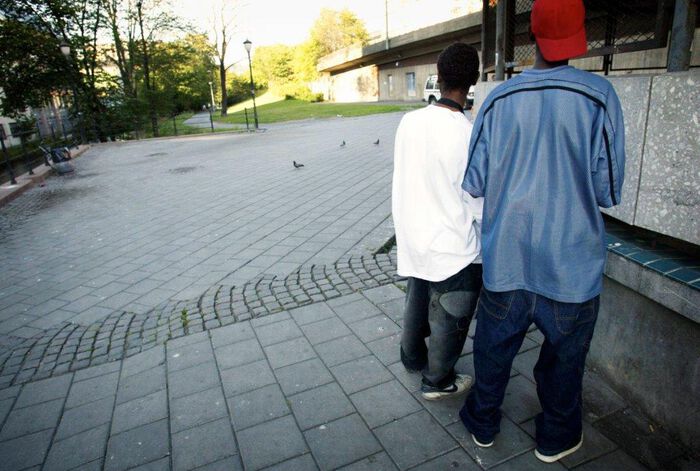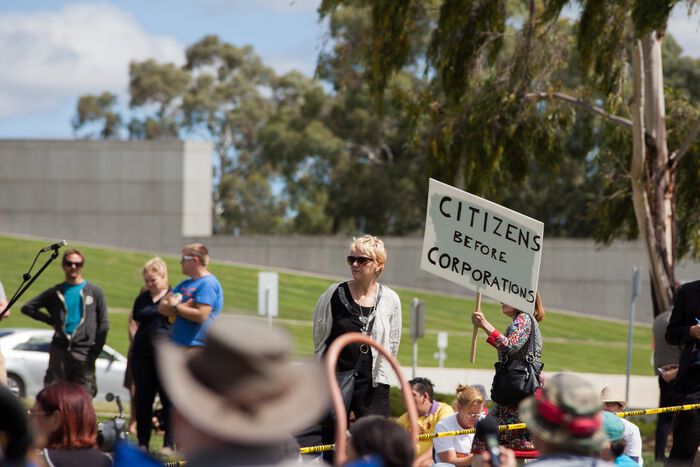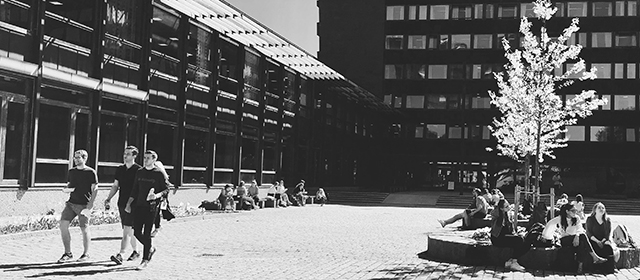- We have focused on the fact that the world is currently undergoing super fast, frantic processes of change, which are creating feelings of powerlessness in many communities around the world. This is important in order to understand new political lines of conflict, to deal with future refugee and migrant situations and to deal with environmental problems and climate change.
- The greatest challenges involve curbing these processes of change without victimising poor people in the Global South further.
Thomas Hylland Eriksen is a Professor of Social Anthropology at the University of Oslo and has been interested in acceleration and speed for a long time. In 2001, he published a book entitled "Tyranny of the Moment," which concerns some of the human implications of new information technology. In this book, he shows how increased speed affects both how we live and our perception of time.
And there has been no reduction in the tempo since then:
- I am sure that we could have created an interesting project about overheating in 1850 as well, but it is a fact that since 1991, there has been an acceleration of change in a number of domains, as a result of globalisation and technological change, and this is why 1991 in many ways is a benchmark year for the project, says Professor Eriksen.
Powerful increase in tempo since 1991
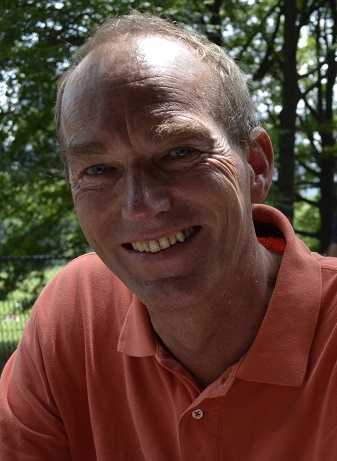
Since the early 1990s, we have witnessed burgeoning growth in urban development in the global south, tourism and coal exports, etc. These and many other rapid change processes formed the basis of the Overheating project.
Taking a breath, the Professor says:
- In the space of a few decades in the 1800s, there was an explosion in the development of technology associated with coal and fossil fuels. Steamships reduced the journey from Europe to America from months to weeks. It was a revolution! Then came the telegraph, followed by the transatlantic telegraph cables, making it possible to send messages from London to New York almost instantaneously. It was a dramatic change, and it has subsequently been said, perhaps with a slight exaggeration, that the Internet was just a footnote to the telegraph.
In 1991, the tempo continued to pick up. Professor Hylland Eriksen lists the following: the internet became more accessible to ordinary people, and the same applied to mobile phones that people could carry in their pockets. The Cold War ended, and a period of truly global capitalism began. The Indian economy was deregulated and opened up, and China saw the start of its economic transformation. During the same year, 1991, Nelson Mandela was released from prison, and South Africa joined the global networks in earnest.
However, events heralding opposing advances also occurred:
- The civil wars in the Balkans and the Rwandan genocide reminded us that these accelerating changes in technology, communications and economics had not put a stop to our traditional ways of thinking about identity, bound by concepts of nationality, religion and ethnicity. Identity politics had not disappeared – in fact it may even have been reinforced, as can be seen today.
Investigated how different local communities are tackling changes
In his capacity as an anthropologist, Eriksen is not just concerned with the bigger picture. He is also interested in the different ways in which global changes are understood and dealt with in different places around the world:
- The whole world is not changing – at least not in the same ways – and this is where anthropology comes in. First, we need to look at the bigger picture, but it does not show the massive local differences in the ways in which global changes are being handled.”
The social anthropologist wanted to create a project which would be able to combine global analysis with anthropology based on longstanding fieldwork in different communities. “The question was, how were people in different places reacting to these accelerating changes? I then received an Advanced Grant from the European Research Council (ERC). I couldn’t believe my eyes when that e-mail arrived!
Between 2012 and 2017, together with a team comprising postdoctoral fellows, PhD candidates and Masters’ students, he has investigated what the group sometimes referred to as the three crises of globalisation – the environmental, economic and cultural crises.
During the first phase of this comprehensive and comparative project, he and four other researchers were conducting simultaneous fieldwork: Professor Hylland Eriksen was working in an industrial city in Australia, while the others were working in the Philippines, Peru, Canada and Sierra Leone respectively. They have subsequently been joined by more researchers who have been focusing on Sri Lanka and Europe, and several Masters’ theses have been submitted from Corsica, the Caribbean island of Dominica and Nepal, to mention a few of the field sites.
- One of the benefits of conducting simultaneous fieldwork in a research team like this one is that you discover not only differences, but also many similarities between the various locations, and you can actually carry out some of the comparisons live, as it were. What happens in Canada in many ways resembles what is happening in Australia and the Philippines. Discovering such links and common traits when working side by side is exciting. Mind you, anthropologists are not mainly testing hypotheses, so our analytical approaches evolve while we engage in fieldwork, and in this case, there has been quite a bit of cross-fertilisation between fieldsites.
Faux democracy
One important reason why people have a sense of powerlessness is that they no longer feel that they have sufficient influence over important decisions which apply to their local communities. Decisions about their lives and homes are increasingly made by people far away.
- Many people in otherwise very different societies are experiencing a democratic deficit, in the sense that decisions are being taken increasingly higher up in the system, and that it is becoming harder to know who to turn to. In the days of Marx and Engels it was easier, because the factory owner was an easily identifiable capitalist, proverbially with a top hat, waistcoat, cigar etc. Now the means of production tend to be owned by conglomerates which can be difficult to identify and impossible to communicate with. The new coal port in Gladstone, where I worked, is 13% owned by the Chinese and 23% by a conglomerate of Indian companies – so who should the locals go to with their complaints?
In a democracy like Australia, the citizens are often encouraged to make contributions, but in actual fact they have no influences on the decisions made:
- The authorities come along and say that they would like to hear what people think. They organise public hearings and serve tea and biscuits. I have attended a number of such meetings. Various local stakeholders, fishermen, environmental activists and professionals speak out, the authorities nod and smile and say “thank you for your views, we are going to take them with us as we proceed” – and nothing happens. It is has elements of a faux democracy, with a full freedom of expression, but with limited possibilities to influence decision-making.
Another common trait discovered by the Overheating researchers was the increased exclusion of and escalating social problems affecting indigenous peoples, especially in so-called boomtowns, or communities undergoing extremely fast economic and demographic growth, typically associated with extraction industries such as the mining and oil extraction industries.
Not just negative
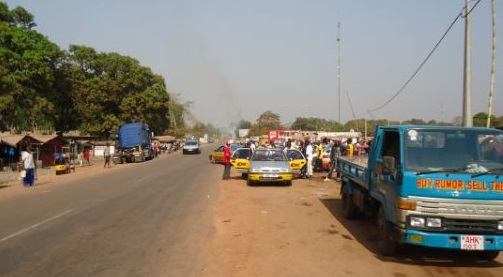
However, it is important to remember that not all societies experience rapid change as being negative:
- We had for a long time spoken about the three major crises of globalisation linked to economies, the environment, culture and identity. But we eventually discovered that not everyone experienced the accelerated changes as being a crisis.
- For example, people in Sierra Leone had recently emerged from a bloody civil war and mainly saw the upsides of foreign investments. To put it a bit flippantly, they had little against being exploited by the Chinese because they created jobs and development. Now, for example, they could buy bread on the roadside which was not covered with a thick layer of dust because the Chinese had paved the roads. No-one cared then about who made the decisions or where the money was coming from - they were happy because they were able to participate in what they saw as being a positive development.
Many discoveries
During the course of the project the researchers made many empirical discoveries, including the fact that the mining industry and the activities associated with it were undergoing massive growth almost everywhere. Eriksen uses his own fieldwork site as an example and calls Gladstone a "city that is virtually marinated in coal and gas":
- Trains loaded with coal rolled through the city every day. Some people had the same white, plastic furniture that we have in Norway, and whenever they wanted to use it, they had to go out with a cloth and wipe off the black coal dust.
Resources, more precisely oil sands, were also being extracted in Alberta, Canada, and in Sierra Leone plans were afoot to start mining on a large scale.
- The race is on to secure the most valuable minerals and other non-renewable resources. Two examples are phosphate, which is used for agricultural purposes and can only be found in a few places in the world, and precious metals from the war-torn, turbulent Eastern Congo, metals that are used in mobile phones.
- Another key insight is that we need to understand scalar conflicts or clashing scales if you prefer, and take them seriously: decisions are being made at an increasingly abstract level, and it is becoming harder for ordinary citizens to feel that they are able to influence the conditions that shape their own lives. This creates a perfectly understandable sense of powerlessness and distrust towards the elite. And it often leads to a reversion to traditional identities which are opposed to globalisation. So both jihadism and ethnonationalism are understandable, if not defensible, reactions in the light of these overheated processes.
- What will happen when climate change, for example, results in water shortages, such as in Peru, where one of the researchers was based – who should they turn to then if they want to complain? The Chinese? The Americans? It is obvious that the gap between large-scale and small-scale conflicts, both here and in many other places throughout the world, is making it hard to engage in effective political action.
Important to talk to several social groups
- It was important for us to talk to different social groups. A community consists of different strata and classes, and I wanted to include the most important decision-makers, the middle classes, the activists and the poor. So, the question is, to what extent did we succeed? It is not always possible to get in touch with everyone you want to see – they must want to talk to you too. But on the whole, I'd venture that we were reasonably successful.
While conducting his own fieldwork, he established good contacts with people from several different levels of society, and he talked to them about how they were dealing with these accelerated changes. Did it go well or badly? What problems occurred? And who was to blame? However, in order to make connect with young people he had to use a young research assistant:
- I was able to make good contact with their parents, who were in their 40s and 50s, and with the local politicians, shopkeepers and other grown-ups and middle-aged people, but I needed help to find out what the 20-yearolds were thinking and doing.
Scaling down and cooling down
- One possible political extrapolation from our work is that we need to slow down the tempo, cool down and scale down, in order to regain control of our lives, and to stem the tide of political movements that are causing conflicts, suspicion and exclusion.
The professor regards these populist movements as being a reversion to identity policy, at both ends of the scale, from Islam to right-wing populism, nostalgic socialism and traditional nationalism. However, according to him, deep down these new identity crises are not all about ethnicity, nationality or religion. Rather they concern the fact that people are suddenly failing to recognise their home areas:
- A fast growth in the immigrant population and rapid changes in other areas can make people feel insecure and unsafe. When your neighbours suddenly start to speak Polish or Punjabi, people start asking themselves who they are, and identity crises can occur. Particularly if there is a recession at the same time.
Hylland Eriksen continues:
- Overheating involves, in a metaphorical sense, global warming without a thermostat. Our bodies have a thermostat and tell us when they start to become too hot – the world doesn't have one and this is very dangerous. The world has a fever, but nobody has the power to heal it. No one knows the consequences, and there are no authorities who have the power to step on the brake.
Eriksen's answer is that involvement starts with close experience. He refers to a woman in her 60s with whom he became acquainted in Australia. She had become an environmental activist after she found dead turtles in the water outside her home, and went from being a home-loving housewife to fighting against industrial discharges in Australia and the coal sands industry in Canada.
New addresses
Professor Hylland Eriksen says: “From an Overheating perspective, many of the frustrations – aside from racism – of those who have voted for e.g. Trump and Brexit, could be regarded as being fully legitimate. The elite in the capital were not really interested in their very real problems. The analyses — again apart from racism — were often correct, but the complaints were sent to the wrong address.”
He suggests that complaints should instead be sent to political movements which are fighting for social justice and ecological sustainability; to environmental organisations that think globally; and to organisations that are working for global social justice:
- We would then be addressing the problems associated with both class and the climate at the same time. It is necessary to solve the problems created by global overheating without causing any greater disparity. Unfortunately, there is currently no agreement on the diagnosis, and consequently it is difficult to prescribe the right medicine.
According to Eriksen, the diagnosis is one of massive inequality, powerlessness and environmental degradation:
- Something which was regarded as a blessing for 200 years - access to cheap fossil fuels - has now become a curse. If we could just agree about this, we could move on. But things are not looking good at the moment since those in power are neglecting research and have adopted a nonchalant attitude to knowledge.
Freely available knowledge as a weapon
The professor has always stressed the importance of disseminating academic knowledge to different audiences. Overheating has its own YouTube channel and a Facebook page, and they have recently released a free e-book about knowledge and power. Professor Hylland Eriksen has several thousand followers on his own Facebook profile and he greatly appreciates this virtual chat room.
So far the project has resulted in a long list of publications, and more are in the pipeline, including Hylland Eriksen's monograph about Gladstone in Queensland, Australia, which will be released during the summer of 2018. This febrile child is called "Boomtown".
His 2016 monograph entitled Overheating has been consciously written so that anyone can read it. He also emphasises that most of his books in English have been published by Pluto Press, which immediately publishes books in a reasonably priced paperback format rather than releasing expensive hardback editions:
- We are in the privileged position of being able to produce knowledge, but we then need to find ways of presenting it so that it can contribute towards our collective self-reflection about who we are and what we do. If our knowledge fails to leave the seminar room, then we have failed, concludes Thomas Hylland Eriksen.
Author: Nina Alnes Haslie
Learn more:



